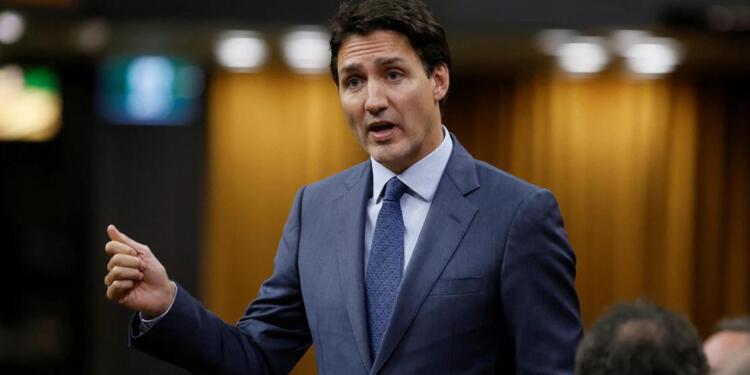The recent exchange of remarks between Canadian Prime Minister Justin Trudeau and Indian officials has once again brought to light the underlying tensions in the relationship between India and Canada. Trudeau’s comments regarding Khalistani elements within Canada have sparked controversy and drawn strong criticism from India, further straining diplomatic ties between the two countries.
Trudeau’s recent reaffirmation of Canada’s commitment to protecting the rights of the Sikh community, coupled with his acknowledgment of the killing of Hardeep Singh Nijjar, a Khalistani separatist wanted in India on terrorism charges, has elicited a sharp response from India.
Indian officials have condemned Trudeau’s remarks, alleging that they not only exacerbate tensions between the two nations but also encourage violence and criminal activities within Canada. This critical stance reflects India’s concerns regarding the perceived tolerance of separatist ideologies within Canada’s political landscape.
The roots of the current diplomatic strain can be traced back to Trudeau’s earlier allegations of potential Indian involvement in Nijjar’s killing, which India swiftly rejected as baseless. This episode led to a diplomatic standoff between India and Canada, marked by retaliatory measures such as the temporary suspension of visa issuance to Canadian citizens and the withdrawal of diplomats by Canada. The subsequent escalation of tensions underscored the deep-seated differences between the two countries over issues of national security and sovereignty.
Also Read: Canada loses 22 Billion Dollars due to its Rift with India
At the heart of the matter lies India’s longstanding grievances regarding Canada’s alleged harboring of individuals and groups advocating for the disintegration of India and promoting anti-India sentiments. India perceives such actions as a threat to its territorial integrity and national security, prompting it to demand greater vigilance from Canada in addressing the activities of Khalistani separatists and other extremist elements operating within its borders.
However, Canada’s commitment to upholding freedom of expression and protecting minority rights complicates efforts to address India’s concerns without infringing upon these principles.
The Khalistani controversy also reflects broader challenges in managing bilateral relations between India and Canada. Despite shared democratic values and growing economic ties, the relationship has been characterized by periodic tensions and divergent priorities. Issues such as trade disputes, environmental concerns, and human rights have often strained diplomatic relations between the two countries, highlighting the complexities of managing a multifaceted partnership in an increasingly interconnected world.
Against this backdrop, finding common ground on sensitive issues such as Khalistani extremism requires careful navigation and dialogue between India and Canada. Both countries must balance their respective interests and principles while seeking to address mutual concerns and build trust.
Efforts to enhance cooperation in areas of mutual interest, such as trade, education, and innovation, could serve as confidence-building measures and contribute to strengthening the overall bilateral relationship.
Moreover, the Khalistani controversy underscores the need for greater international cooperation in combating terrorism and extremism. As transnational threats continue to evolve, close collaboration between India and Canada, as well as other like-minded countries, is essential to effectively address the root causes of radicalization and prevent the spread of extremist ideologies. By working together to counter violent extremism and promote tolerance and inclusivity, India and Canada can contribute to global efforts to build a more peaceful and secure world.
In conclusion, the recent exchange of remarks between Justin Trudeau and Indian officials regarding Khalistani elements in Canada highlights the complexities and challenges in managing bilateral relations between the two countries. While differences persist, both India and Canada share a common interest in promoting peace, stability, and prosperity. By engaging in constructive dialogue, respecting each other’s concerns, and seeking common ground, India and Canada can overcome current tensions and forge a stronger partnership based on mutual respect and cooperation.
Also Read: The Impact of Canada’s Temporary Work Permit Restrictions on Indians




















